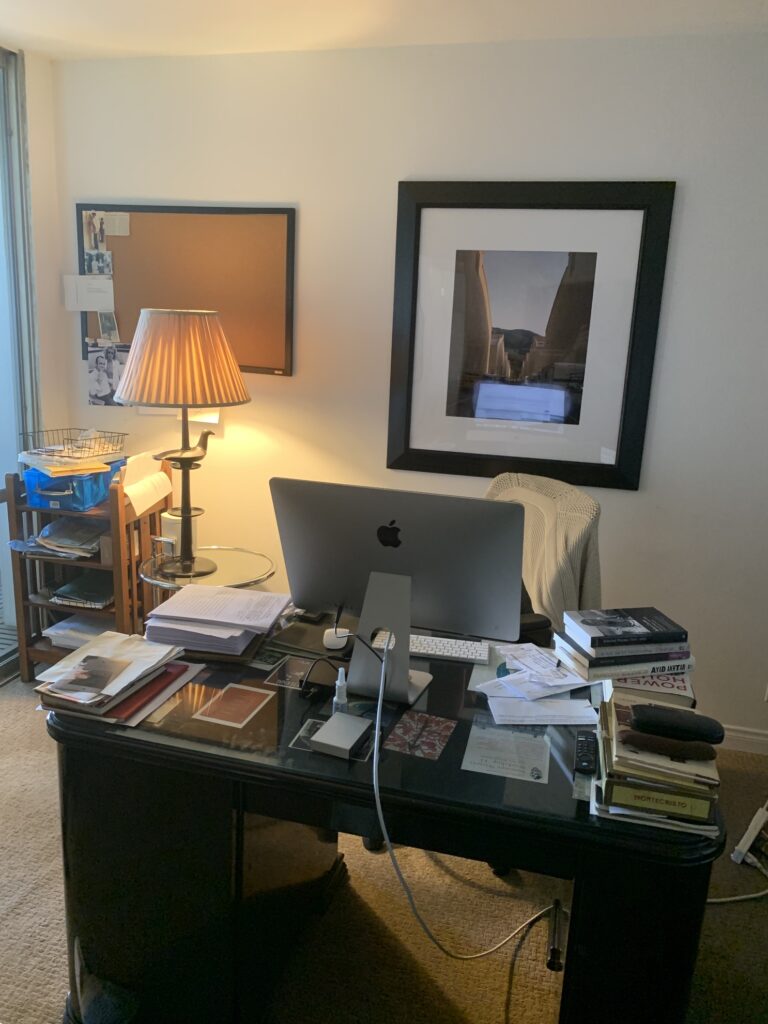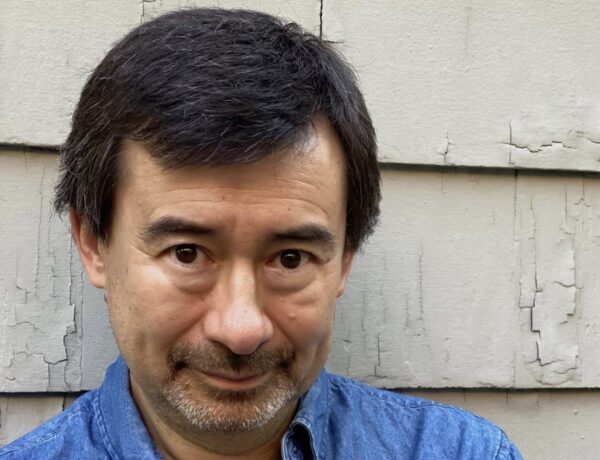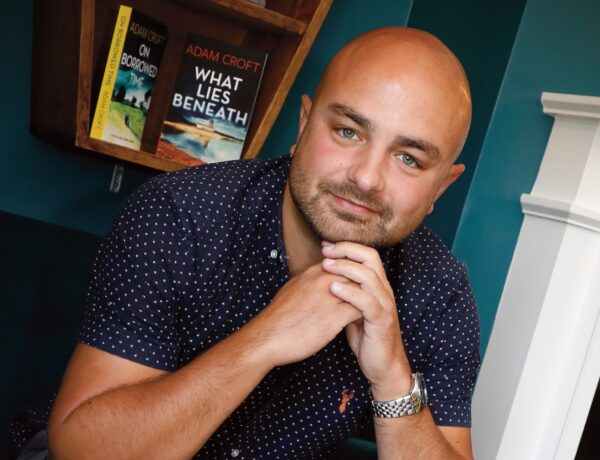Matthew Specktor’s books include the novels That Summertime Sound and American Dream Machine, which was long-listed for the Folio Prize; the memoir-in-criticism Always Crashing in The Same Car: On Art, Crisis, and Los Angeles, California, and The Golden Hour, forthcoming from Ecco Press.
Born in Los Angeles, he received his BA from Hampshire College in 1988, and his MFA in Creative Writing from Warren Wilson College in 2009. His writing has appeared in the New York Times, GQ, The Paris Review, Tin House, Black Clock, and numerous other periodicals and anthologies. He is a founding editor of the Los Angles Review of Books.
Each week, we publish a new daily writing routine from a famous author. Subscribe to our newsletter so you don’t miss out!
Hi Matthew, great to have you on Famous Writing Routines. We’re really excited to talk to you about your writing routine and process. For those who may not know, can you please tell us a little bit about yourself?
I grew up in Los Angeles. That’s something anyone who reads about a page-and-a-half of my writing – any of it – will likely know, but I find it a useful orientation for my work.
I didn’t grow up in a literary environment, I grew up surrounded by the movies and by television. Which had its charms, but it does mean my writing amounts to a kind of counter-programming: I grew up surrounded by images, but much more deeply involved with language.
This tension I suspect shows up in my writing itself. As for the rest of me (“about me”): fifty-something Gen X male, fan of Henry James, Robert Altman, Oaxocan food and the Los Angeles Dodgers, happily married, one child, and, uh, my dog – a delightful, if neurotic, Wheaton-Schnauzer mix – secretly runs my life.
Can you take us through the creation process for your first novel, That Summertime Sound?
That Summertime Sound, my first published novel, was, in fact, my third. I spent ten years writing two novels that didn’t sell, which I mention only because by the time I started writing it I’d evolved a fairly standard writerly process: get up as early in the morning as you can, caffeinate, start writing before anything else can distract, and write until you’re tired or need to be somewhere else.
With Summertime, I decided I would do everything differently, since I didn’t seem to be getting anywhere within the routine I’d established. Since I was used to writing at 7 AM? I decided I would only work on That Summertime Sound starting at 10 o’clock at night. I was used to writing in silence? I decided to play music – loud music – while I was working.
I was used to writing sober? (Note: I continue to think writing sober is a good idea.) I kept a little tumbler of scotch close to hand while I wrote. The idea was to shake myself up, get loose. And it worked! (At least for the first draft it did. Once I started revising, I went back to working in the mornings.) I still like knowing that my routines and habits aren’t cast in stone: that I can change my approach whenever necessary.
What does a typical writing day look like for you?
Well, right now, and for the past year or two, I’ve been pretty lucky. I sold not one but two books on proposal shortly before the pandemic began, so I’ve been able, thankfully, to float without a day job (a screenwriting assignment, this usually means for me).
That means my routine has been incredibly fortunate, and essentially uninterrupted for a while. I wake up, I walk the dog, I have coffee with my wife – who, likewise, is working on a book at the moment – and then we retreat to our opposite ends of the hall. Around 3:00 the dog needs another walk, then it’s gym or yoga, reading, cooking, then whatever moving images we wanna watch before bed.
It’s not always this unimpeded for either one of us – usually we have other projects (my wife is a producer, as well as a writer), and there’s lots of juggling, but that’s how it looks right now.

How did the COVID-19 pandemic and subsequent lockdowns affect your routine?
Being a writer, my routine has always been pretty home-focused – even before the pandemic, it was. So what’s changed over the course of the pandemic is mostly emotional and internal: an expansive sense of grief, a consciousness (still processing) of global trauma.
Our friends and family have, thus far, survived – although my father was very sick for a bit – and so it’s not so much my routine that’s been altered as my (and everyone else’s) reality. I wear masks. That’s the biggest change. Needless to say, I consider it obscenely fortunate that I have experienced, thus far, only smaller ones.
In 2021, you published Always Crashing in the Same Car: On Art, Crisis, and Los Angeles, California, which incorporated much of your own life into the story. Can you describe the difference between writing a wholly fictional novel, and one that blends elements of memoir?
The difference is less radical than one might think. I’m a novelist by definition, or – as I’ve sort of forced myself to reconceive my job description over the last few years – a writer of “longform imaginative prose.” I’m not sure how much I like any of those three words in that context, but nevertheless. I’m interested in writing that anchors itself, to some degree, in real life. I say “to some degree” because I think reality requires some interface with private imagination to be worthy of the name.
In a novel, you invent things: characters, situations, a narrative. You invent these things predicated, one way or another, on your experience. (By “your experience,” of course, I mean your dreams, your fantasies, your speculations too. What are these things but particles of experience?)
With a memoir, you don’t invent any of those things (all of them are provided), but you still have to invent the narrator who’s capable of arranging and telling. Which might be harder. I don’t know: my own fiction has always drawn a bit on the events and figures of my life, so it’s not a huge leap. I do find it a gratifying one though. I’ve enjoyed writing a memoir much more than I ever would have imagined I would.
What does your writing workspace look like?
My writing space is tidy, but chaotic. (Or is it the other way around?) Things pile up on my desk: notebooks, photographs, books I’m referring to either for research or inspirational purposes. My music server is always open on my desktop, playing something. (I know: lots of people prefer quieter, ambient or instrumental music while writing, but not me.
I’ll play just about anything, although I do have a certain fondness for music that’s droney or dreamy – Spacemen 3, Galaxie 500, etc – while I’m working.) But I can’t work as well in straight clutter. I need a sense that this is a dedicated writing space, that there’s some type of order involved.

Before you go…
Each week, we publish a new writing routine from a famous author. Subscribe to our newsletter so you don’t miss out!



No Comments